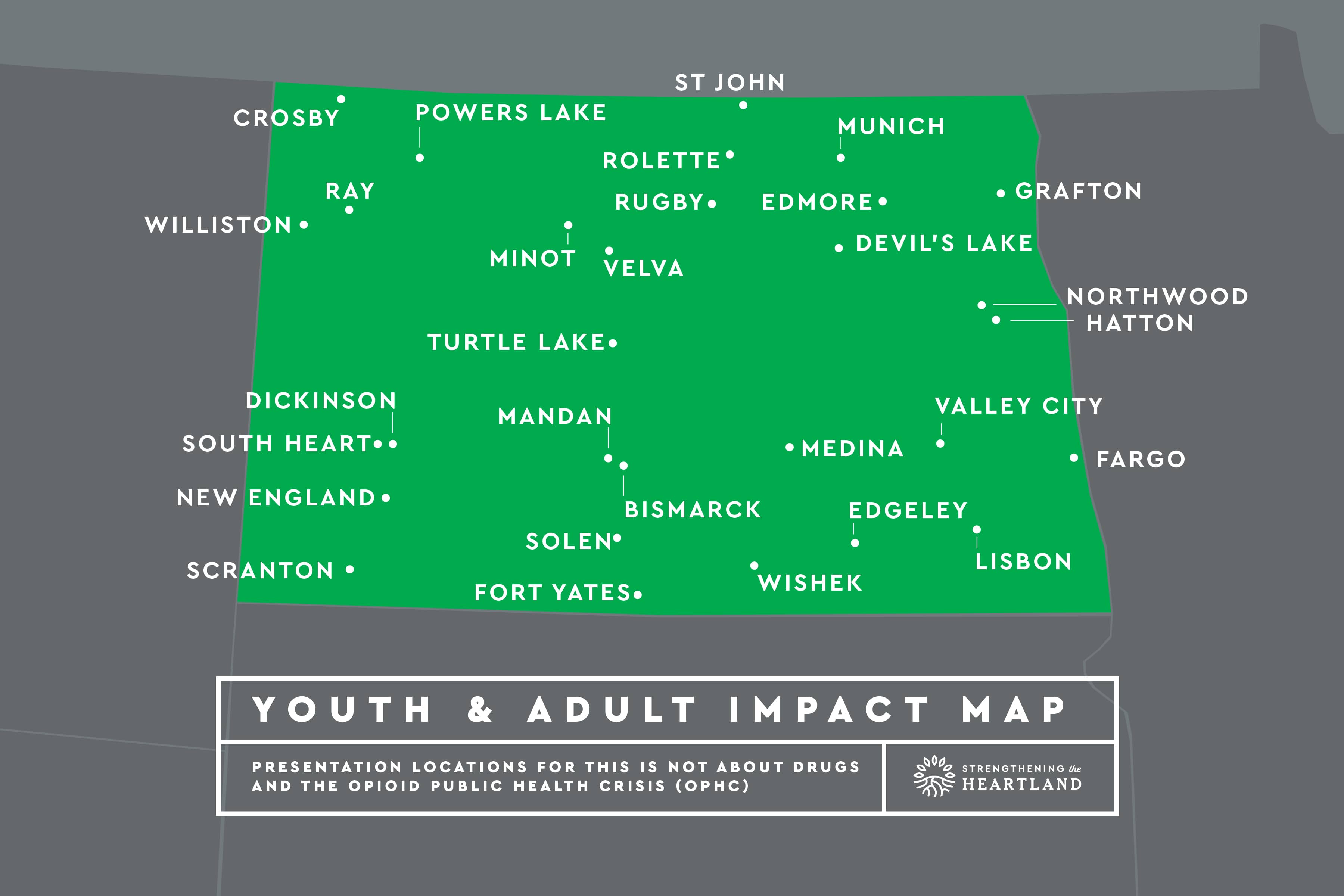
Content provided by NDSU Extension. Image provided by SDSU.
North Dakota State University and South Dakota State University have been awarded a two-year, $1,081,644 Substance Abuse and Mental Health Services Administration (SAMHSA) grant.
“It allows us to continue the work we have been doing on opioid misuse prevention,” says Meagan Scott Hoffman, a 4-H youth development specialist in NDSU Extension’s Center for 4-H Youth Development.
This is the second SAMHSA grant the two universities have received.
With the first grant, the universities created a program called Strengthening the Heartland. The continuation of that effort with the new grant is called Strengthening the Heartland: Supporting Empathic Rural Opioid Response.
The goals for the new program are to:
- Increase access to research-based educational tools related to opioid/stimulant misuse for Extension professionals and health-care providers in rural North and South Dakota communities
- Increase knowledge and empathy related to opioid/stimulant misuse among members of rural communities in the two states
“With opioid misuse a rising problem in North Dakota, this grant allows us to provide the resources and tools to individuals in rural communities who may not have access to health care and resources,” Hoffman says. “Overall, we are striving to empower and equip the citizens of North Dakota with the tools needed to address opioid misuse. It is our team’s hope that we can work together to promote rural prosperity and rural wellness across the Dakotas.”
The universities’ efforts already are making an impact. In two years, the program has reached 2,086 youth in 30 locations in schools across North Dakota through a multimedia presentation called “This Is Not About Drugs.” Youth reported increased knowledge following the one-hour presentation, as indicated by a comparison of their pre- and post-test responses.
“The change in knowledge is notable, given the brief one-hour nature of the presentation,” Hoffman says.
Adults participated in a similar type program called the Opioid Health Crisis. The program has reached 287 adults in seven locations across the state.
Those from NDSU who will be working on the program are Hoffman; Carrie Johnson, Extension personal and family finance specialist; and Kim Bushaw, Extension family science specialist. The three from NDSU who originally worked on the program were Hoffman; Sue Quamme, 4-H youth development specialist; and Holly Arnold, an Extension parent educator. Visit https://www.sdstate.edu/strengthening-heartland for more information about the program.
